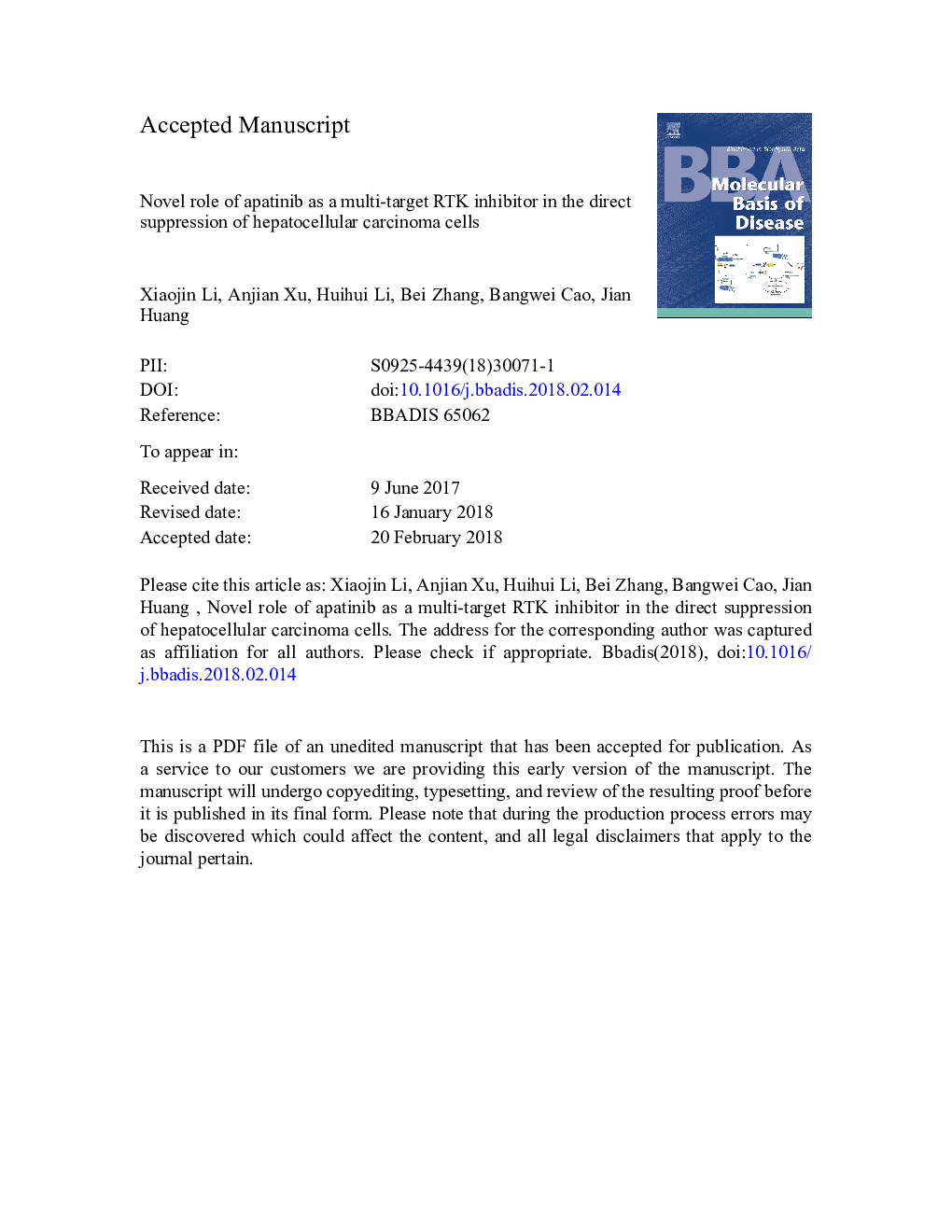| Article ID | Journal | Published Year | Pages | File Type |
|---|---|---|---|---|
| 8258471 | Biochimica et Biophysica Acta (BBA) - Molecular Basis of Disease | 2018 | 27 Pages |
Abstract
Although apatinib has been demonstrated with potential antitumor activity in multiple solid tumors, the underlying mechanism of apatinib for the treatment of hepatocellular carcinoma (HCC) remains unclear. In the present study, we explored if there are any direct suppression effects of apatinib on HCC cells and its relevant targets. We investigated the effect of apatinib on viability of five HCC cell lines and an intrahepatic cholangiocarcinoma cell line, and colony formation, apoptosis and migration of representative HCC cells in vitro; and HCC progression in a xenograft mouse model. Using a phospho-receptor tyrosine kinase pathway array with 49 different tyrosine kinases, we screened and verified the tyrosine kinase targets involved in apatinib response. Apatinib treatment significantly inhibited HCC cell viability, proliferation, colony formation, and migration, and enhanced cell apoptosis in a concentration-dependent manner (pâ¯<â¯0.05). Furthermore, apatinib showed a favorable anti-tumor growth effect (71% of inhibition ratio, pâ¯<â¯0.05) in an established human HCC xenograft mice model with good safety. RTK pathway arrays and western blots analysis demonstrated that apatinib significantly downregulated the phosphorylation levels of several tyrosine kinase receptors, particularly PDGFR-α and IGF-IR, and inhibited Akt phosphorylation. These data suggest that the apatinib may have a direct anti-HCC effect as a direct multi-target RTK inhibitor of HCC cells and a promising potentiality in HCC clinical therapies.
Related Topics
Life Sciences
Biochemistry, Genetics and Molecular Biology
Ageing
Authors
Xiaojin Li, Anjian Xu, Huihui Li, Bei Zhang, Bangwei Cao, Jian Huang,
